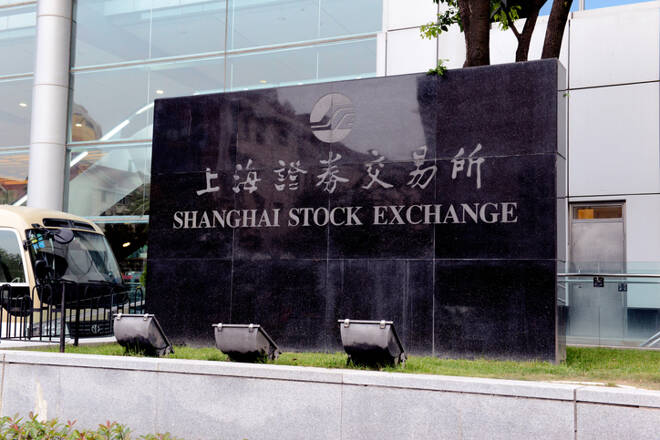Advertisement
Advertisement
Asian Shares Rebound as Abating Middle East Tensions Drive Up Risk Demand
By:
China’s consumer inflation steadied while factory-gate prices fell at a slower pace in December, giving Beijing room to stay the course on monetary easing as economic growth cools.
The major Asia Pacific stock indexes rose on Thursday, recovering from sharp declines the previous trading session, after remarks from the United States and Iran dampened concerns over an escalation of tensions in the Middle East.
President Donald Trump said on Wednesday the United States did not have to respond militarily to Iran’s attack, while Iranian Foreign Minister Mohammad Javad Zarif said the rocket strikes “concluded” Tehran’s retaliation.
At 06:52 GMT, Japan’s Nikkei 225 Index settled at 23739.87, up 535.11 or +2.31%. South Korea’s KOSPI Index is at 2186.45, up 35.14 or +1.63% and Hong Kong’s Hang Seng Index is trading 28450.61, up 362.69 or +1.29%.
China’s Shanghai Index is at 3093.49, up 26.60 or +0.87% and Australia’s ASX/200 Index settled at 6874.20, up 56.20 or +0.83%.
Besides the unwinding of safe-haven bets, investor sentiment was also boosted by data showing China’s efforts to prop up its economy was yielding results as producer prices fell at a slower pace.
Trump, Zarif Comments Put Investors at Ease
President Trump said on Wednesday Iran appeared to be “standing down” but added the U.S. will “immediately impose additional punishing economic sanctions on the Iranian regime.”
After Iran launched a missile attack against air bases in Iraq that housed U.S. troops, Iran’s Foreign Minister Mohammed Javad Zarif tweeted”
“Iran took & concluded proportionate measures in self-defense under Article 51 of UN Charter targeting base from which cowardly armed attack against our citizens & senior officials were launched. We do not seek escalation or war, but will defend ourselves against any aggression.”
China’s Consumer Inflation Steadied, Producer Inflation Fell
China’s consumer inflation steadied while factory-gate prices fell at a slower pace in December, giving Beijing room to stay the course on monetary easing as economic growth cools.
China’s consumer prices in December rose 4.5% from a year earlier, National Bureau of Statistics (NBS) data showed on Thursday, unchanged from November’s pace, but lower than analysts’ forecast of 4.7%. Core inflation, which excludes food and energy prices, stayed largely subdued.
The producer price index (PPI), seen as a key indicator of corporate profitability, fell 0.5% from a year earlier, data showed. Analysts had expected factory-gate prices to fall 0.4% year-on-year, compared with a 1.4% drop in November.
Broad Australian Market Rebounds, Gold Stocks Tumble
Australian shares on Thursday advanced to their highest in a month after U.S. President Donald Trump’s tempered response to Iranian missile attacks calmed markets.
Heavyweight financial stocks tacked on 1.1%, with Commonwealth Bank of Australia and National Australia Bank adding 1.1% each, while Westpac Banking Corp advanced 0.7%.
Iron ore prices inched towards five-month highs on Wednesday, with domestic miners reaping benefits of the rally, amid hopes of strong restocking demand in Chinese mills ahead of local holidays.
The surge in gold stocks ended, as abating Middle East tensions dampened demand for the safe-haven bullion. Top gold miner Newcrest Mining slipped 2.3%, while Northern Star Resources lost 3.1%.
About the Author
James Hyerczykauthor
James Hyerczyk is a U.S. based seasoned technical analyst and educator with over 40 years of experience in market analysis and trading, specializing in chart patterns and price movement. He is the author of two books on technical analysis and has a background in both futures and stock markets.
Advertisement
